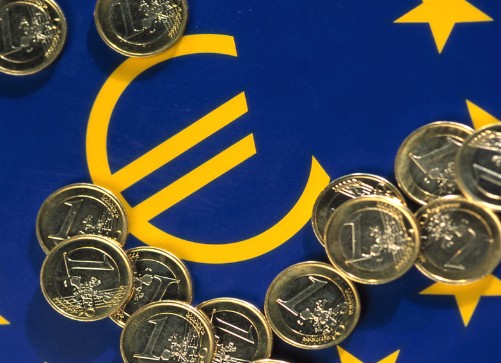 Credit: European Commission
Credit: European Commission
Eurozone Negotiations With Greece Enter New Phase
As the Greek government met the Eurogroup’s deadline to hand over critical reform plans late February, the Mediterranean country secured an additional four months of its bailout program – set up by the European Central Bank, the International Monetary Fund and the European Union Commission.
The deal that was struck last month is a temporary one, and the reform plans that the Greek officials submitted were preliminary. Greece has until the end of April to reach an agreement on the content of the reforms with the Eurozone finance ministers to make sure it will receive additional funds from the bailout program. Most notably, Greece has to show how it will combat the pervasive habit of tax evasion within its borders, fight corruption, and reform its dysfunctional system of public administration.
In the meantime, it seems progress has been slow in the two weeks since the meeting took place that resulted in the extension of the bailout program. Jeroen Dijsselbloem, president of the Eurogroup, commented that “little has been done since the last Eurogroup in terms of talks, in terms of implementation. We have to stop wasting time and really start talks seriously.” Dijsselbloem’s comments were not without success, because after Monday’s monthly meeting of the Eurogroup it became clear that technical talks about Greece’s structural economic reforms to unlock further funding will resume on Wednesday.
As ASP has reported before, the disagreements amongst the Eurozone’s pro-austerity camp and the leftist course taken by Greece’s government have put immense pressure on the relations between Greece and its fellow Eurozone member states, primarily with its main creditor Germany. Having vowed to his electorate that he would end the Troika’s austerity regime and increase government spending for the poor, Prime Minister Alexis Tsipras has been playing tug of war with the rest of the Eurozone to feel out on how much of these promises he can deliver on without losing the support of the Eurogroup entirely.
In an attempt to explain his policies to his fiercest critics, Tsipras laid out and defended his plans for Greece in a lengthy interview with Der Spiegel. When asked about the prospects of the divergent views on austerity between Greece and Germany, Tsipras said, “Europe is facing a dilemma: one either accepts the demands of the people in the south, who have suffered a lot under austerity, and correct the course – or one reacts arrogantly and punitively. If that were to happen, Greece would gradually suffocate.”
For a Prime Minister to use such a stark image of division between the northern and southern Eurozone member states not only feeds into the populist rhetoric of a divided Europe, it puts further stress on what has already been a tense negotiating process. Tsipras has proven himself a responsible political leader during the February rounds, and has shown a realistic approach – albeit not until the last minute- to what policy changes are needed to keep Greece within the Eurozone.
For the coming months of crucial negotiations, Tsipras would do better adhering to his own credo, “life is full of compromises and compromises are vital for his country’s cooperation with the European Union. We must leave disaster of all kinds behind us.” If Tsipras is able to credibly convey that message to his constituents, it is up to Germany and all other Eurozone member states to prevent European unity being sacrificed on the altar of Greece’s ballot box – and deliver on the vital notion of European solidarity.






[…] Eurozone Negotiations with Greece Enter New Phase Hugo Grondel As the Greek government met the Eurogroup’s deadline to hand over critical reform plans late February, the Mediterranean country secured an additional four months of its bailout program – set up by the European Central Bank, the International Monetary Fund and the European Union Commission. […]